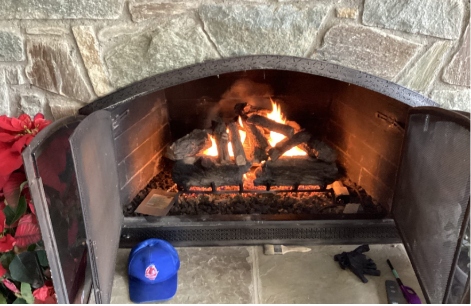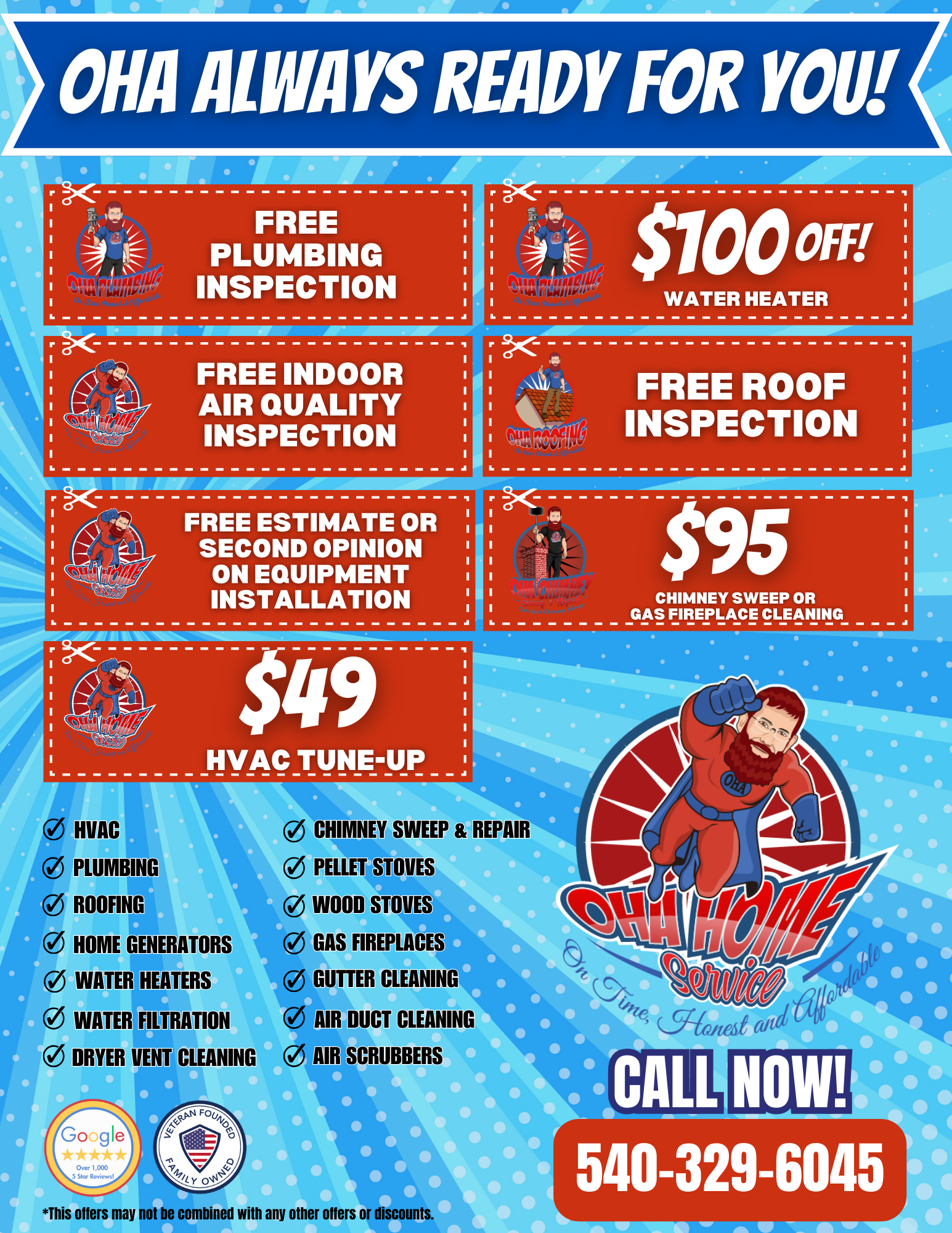Winter nights are better with a cozy gas fireplace. The warmth, the ambiance, and the convenience make it a favorite for many homeowners. But what happens when your fireplace stops working or starts smelling strange? Regular gas fireplace service is the key to keeping your fireplace safe, efficient, and ready to warm your home.
This comprehensive guide will walk you through the ultimate gas fireplace service checklist. Whether you’re a DIY enthusiast or prefer to call in the pros, this checklist will help you maintain your fireplace like a pro.
Why This Guide Matters
Gas fireplaces are a very popular choice for their convenience and efficiency. However, they require regular maintenance to function safely and effectively. You could face issues like gas leaks, carbon monoxide poisoning, or costly repairs without proper care.
This guide is designed to help you:
- Understand the importance of gas fireplace service.
- Perform basic maintenance tasks yourself.
- Know when to call a professional.
- Spot warning signs that your fireplace needs immediate attention.
Following this checklist will ensure your fireplace is always ready to provide warmth and comfort during the coldest months.
Why Gas Fireplace Service Matters
Like any appliance, fireplaces require regular care to function safely and effectively. Without proper maintenance, you could face serious risks, higher costs, and a shorter lifespan for your fireplace. Here’s why gas fireplace service is so important:
1. Safety First
Gas fireplace uses natural gas or propane, which can be dangerous if improperly handled. Gas leaks or carbon monoxide buildup can lead to fires, explosions, or even poisoning. Regular service ensures your fireplace is safe to use.
- Example: A family in Stafford avoided a potential disaster when their annual inspection revealed a small gas leak. The technician fixed it before it could cause any harm. The leak could have led to a fire or carbon monoxide poisoning without that inspection.
- Stat: According to the U.S. Fire Administration, gas leaks cause thousands of home fires each year, many of which could have been prevented with regular maintenance.
- Tip: Install a carbon monoxide detector/sensor near your fireplace. If it goes off, evacuate immediately and call a professional.
Many homeowners ask, “How often should I service my gas fireplace to prevent gas leaks?” The answer is at least once a year, ideally before the winter season.
2. Save Money
A well-maintained fireplace burns cleaner and uses less gas, which can significantly lower your energy bills. But neglecting maintenance can lead to inefficiencies that cost you more in the long run.
- Stat: According to the U.S. Department of Energy, regular maintenance can improve fireplace efficiency by up to 30%, saving you hundreds bucks annually.
- Example: A homeowner in Woodbridge noticed their gas bills were unusually high. After a professional inspection, they discovered a clogged burner, causing the fireplace to use more gas than necessary. Cleaning the burner restored efficiency and lowered their bills.
- Tip: Schedule an annual cleaning of the burner and logs to prevent blockages that reduce efficiency.
If you’re wondering, “Can a gas fireplace save me money on heating bills?” the answer is yes—but only if it’s properly maintained. A well-serviced fireplace burns fuel more efficiently, reducing energy costs.
3. Longer Lifespan
Routine maintenance helps prevent costly repairs and extends the life of your fireplace. Like a car, your fireplace needs regular check-ups to keep running smoothly.
- Example: A homeowner in Chantilly neglected their fireplace for years, skipping annual inspections and cleanings. When it finally broke down, the repair cost was over $2,000. Regular maintenance could have prevented this expense.
- Stat: A gas fireplace can last 12-20 years with proper care. Neglecting maintenance can cut that lifespan in half.
- Tip: Simple tasks like cleaning the glass, testing the ignition, and inspecting the vent can prevent major issues down the line.
A common question is, “How long does a gas fireplace last with proper maintenance?” With annual service, you can expect your fireplace to last up to 20 years or more.
4. Peace of Mind
Knowing your fireplace is in good working order allows you to enjoy it without worry. Regular service gives you confidence that your fireplace is safe, efficient, and ready to use whenever needed.
- Example: A family in Manassas hosted a holiday gathering and relied on their gas fireplace to keep everyone warm. They didn’t have to worry about malfunctions or safety issues thanks to their recent service appointment.
- Tip: Keep a maintenance log to monitor service dates and any issues your technician identifies. This can help you stay on top of repairs and avoid surprises.
If you’re asking, “Why is regular gas fireplace maintenance important?” the answer is simple: it keeps your family safe, saves you money, and ensures your fireplace is always ready to use.
5. Environmental Benefits
A well-maintained fireplace is not only good for your wallet but also for the environment. Efficient burning reduces greenhouse gas emissions and minimizes your carbon footprint.
- Stat: Properly maintained gas fireplaces produce fewer emissions than wood-burning fireplaces, making them a more eco-friendly option.
- Tip: Ask your technician about eco-friendly upgrades like high-efficiency burners or venting systems.
Many people wonder, “Are gas fireplaces environmentally friendly?” The answer is yes—when properly maintained, they burn cleaner and produce fewer emissions than traditional wood-burning fireplaces.
Gas fireplace service isn’t just a luxury—it’s a necessity. Regular maintenance ensures your fireplace is safe, efficient, and long-lasting, from preventing dangerous gas leaks to saving money on energy bills. Don’t wait until something goes wrong. Schedule your gas fireplace service with OHA HVAC, Plumbing, Roofing, Chimney & Fireplaces today and enjoy peace of mind all winter.

The Ultimate Gas Fireplace Service Checklist
Keeping your gas fireplace in top shape requires DIY maintenance and professional service. Follow this detailed checklist to ensure your fireplace is safe, efficient, and ready to use all year round.
Monthly Maintenance (DIY)
1. Inspect the Fireplace:
- What to Do: Look for cracks, discoloration, or debris in the fireplace and vent.
- Pro Tip: Use a flashlight to check hard-to-see areas, especially around the burner and vent openings.
- Warning: Cracks in the glass or vent can lead to gas leaks or carbon monoxide buildup. If you spot any damage, call a professional immediately.
Many homeowners ask, “How do I inspect my gas fireplace for damage?” Start by checking for cracks, discoloration, or debris, and use a flashlight to see hard-to-reach areas.
2. Test the Ignition:
- What to Do: Make sure the pilot light ignites smoothly. If it doesn’t, there may be an issue.
- Warning: If you smell gas while testing, turn off the gas supply instantly and call a professional. Gas leaks are alarming and require immediate attention.
- Tip: If the pilot light doesn’t stay lit, it could be due to a faulty thermocouple, which may need replacement.
A common question is, “Why won’t my gas fireplace pilot light stay on?” The issue could be a dirty thermocouple or a gas supply problem.
3. Clean the Glass:
- What to Do: Use a non-ammonia cleaner to keep the glass clear and soot-free.
- Tip: Mix vinegar and water for a natural cleaning solution for stubborn stains. Apply it with a soft cloth for avoiding scratch the glass.
- Warning: Avoid abrasive cleaners, which can scratch the glass and reduce its clarity.
If you’re wondering, “What’s the best way to clean gas fireplace glass?” use a non-ammonia cleaner or a vinegar-water mixture for a streak-free shine.
Annual Maintenance (Professional Service)
1. Check the Gas Lines:
- What to Do: A professional should inspect for leaks or corrosion in the gas lines.
- Stat: The National Fire Protection Association (NFPA) recommends annual gas line inspections to prevent leaks and ensure safety.
- Tip: Ask your technician to use a gas leak detector for accurate results.
Many people ask, “How often should gas lines be inspected?” The answer is at least once a year to prevent leaks and ensure safe operation.
2. Clean the Burner and Logs:
- What to Do: Dust and debris can block the burner. A pro will clean it thoroughly to ensure proper combustion.
- Example: A homeowner in Fredericksburg noticed their fireplace wasn’t heating properly. The technician found a clogged burner and fixed it in minutes.
- Tip: Regular cleaning prevents blockages that reduce efficiency and can lead to uneven heating.
If you’re asking, “Why is my gas fireplace not heating properly?” the issue could be a clogged burner or dirty logs.
3. Inspect the Venting System:
- What to Do: Proper airflow is crucial. The technician will ensure there are no obstructions in the venting system.
- Tip: Birds’ nests or leaves can block vents, so check them regularly, especially after storms.
- Warning: Blocked vents can lead to carbon monoxide buildup inside your home, which is extremely dangerous.
A common question is, “How do I know if my gas fireplace vent is blocked?” Signs include weak flames, soot buildup, or a strange odor.
4. Test Safety Features:
- What to Do: Carbon monoxide detectors and shut-off valves should be checked to ensure they work.
- Warning: A malfunctioning CO detector can put your family at risk. Replace the batteries annually and test the detector monthly.
- Tip: If your fireplace has no built-in CO detector, install one nearby for added safety.
Many homeowners ask, “How often should I test my carbon monoxide detector?” The answer is monthly, with battery replacements at least once a year.
Seasonal Preparation
Before Winter:
- What to Do: Schedule a professional inspection and cleaning to ensure your fireplace is ready for the cold months.
- Tip: Book early! Technicians get busy as winter approaches, so schedule your service in the fall.
- Example: A homeowner in Spotsylvania waited too long to schedule service and had to go without their fireplace for weeks during a cold snap.
If you’re wondering, “When should I service my gas fireplace before winter?” the best time is in the fall, before the heating season begins.
Signs Your Gas Fireplace Needs Immediate Service
Don’t ignore these red flags. Addressing them quickly can prevent costly repairs or dangerous situations.
1. Unusual Smells
- What to Watch For: A rotten egg odor (added to natural gas for detection) or a burning dust smell.
- Why It’s Serious: A gas leak can lead to explosions or carbon monoxide poisoning.
- Action Step: If you smell gas, turn off the gas supply, open windows, and call a professional immediately.
2. Yellow or Flickering Flames
- What to Watch For: Flames that are yellow instead of blue or that flicker inconsistently.
- Why It’s Serious: This indicates improper combustion, which can produce carbon monoxide.
- Action Step: Turn off the fireplace and schedule a service call to inspect the burner and venting system.
3. Soot Buildup
- What to Watch For: Black soot on the glass, logs, or surrounding area.
- Why It’s Serious: Soot indicates incomplete burning, which can clog the burner and reduce efficiency.
- Action Step: Clean the affected areas and have a professional inspect the burner and gas pressure.
4. Difficulty Igniting
- What to Watch For: The pilot light won’t stay lit, or the fireplace takes multiple attempts to ignite.
- Why It’s Serious: This could signal a faulty ignition system, thermocouple, or gas supply issue.
- Action Step: Check for debris around the pilot light. If the problem persists, call a technician.
5. Strange Noises
- What to Watch For: Popping, banging, or whistling sounds when the fireplace is on.
- Why It’s Serious: These noises can indicate airflow issues, gas pressure problems, or loose components.
- Action Step: Turn off the fireplace and schedule a service call to diagnose the issue.
DIY vs. Professional Service – What You Should Know
Understanding when to DIY and when to call a pro can save you time, money, and stress.
DIY Tasks
1. Cleaning the Glass:
- Use a non-ammonia cleaner and a soft cloth to remove soot and stains.
- Tip: Clean the glass when the fireplace is cool to avoid streaks.
2. Inspecting the Fireplace:
- Look for cracks, discoloration, or debris in the fireplace and vent.
- Tip: Use a flashlight to check hard-to-see areas.
3. Testing the Ignition:
- Ensure the pilot light ignites smoothly. If it doesn’t, there may be an issue.
- Warning: If you smell gas, turn off the gas supply and call a professional.
When to Call a Pro
1. Gas Leaks:
- Gas leaks are dangerous and need immediate professional attention.
- Tip: Install a gas leak detector for added safety.
2. Venting Issues:
- Blocked or damaged vents can lead to carbon monoxide buildup.
- Example: A homeowner in Prince William County discovered a bird’s nest in their vent during an annual inspection.
3. Electrical Problems:
- Faulty wiring or ignition systems can be complex and hazardous to fix.
- Tip: Always hire a licensed technician for electrical repairs.
4. Annual Inspections:
- A professional can spot issues you might miss, like hidden cracks or worn-out components.
- Stat: The Hearth, Patio & Barbecue Association (HPBA) recommends annual inspections for all gas fireplaces.

How to Find a Reliable Gas Fireplace Service Provider
Not all technicians are created equal. Here’s how to find the best:
1. Check Credentials
- Look for licensed, insured, and certified professionals.
- Tip: Ask for their license number and verify it with your local licensing board.
2. Read Reviews
- Check Google, Yelp, or Angi for customer feedback.
- Tip: Look for reviews that mention punctuality, professionalism, and quality of work.
3. Ask for Quotes
- Compare prices and services before hiring.
- Tip: Be wary of quotes that seem too good to be true—they often are.
4. Get Referrals
- Ask friends, family, or neighbors for recommendations.
- Example: A homeowner in Reston found a trusted technician through a neighbor’s referral.
5. Verify Experience
- Choose a technician with experience servicing your specific fireplace brand.
- Tip: Ask how long they’ve been in business and if they’ve worked on similar models.
Your Home’s Comfort and Safety Start with OHA!
At OHA HVAC, Plumbing, Roofing, Chimney & Fireplaces, we’re your one-stop solution for all your home comfort and maintenance needs. From HVAC systems to gas fireplaces, we’ve got you covered.
Why Choose OHA?
- Expert Technicians: Our licensed and certified professionals are trained to handle everything from HVAC repairs to chimney inspections and gas fireplace maintenance.
- Comprehensive Services: Whether it’s your heating system, plumbing, roof, or fireplace, we do it all.
- Transparent Pricing: No hidden fees—just honest, upfront quotes.
- Customer-First Approach: Your safety and satisfaction are our top priorities.
- Convenient Scheduling: Book online or call us to find a time that works for you.
Don’t Wait Until It’s Too Late!
A malfunctioning gas fireplace or HVAC system isn’t just inconvenient—it can be dangerous. Let OHA handle your maintenance and repairs so you can enjoy a safe, comfortable home year-round.
Call Us Today or Book Online Now!
Experience the OHA difference—where expertise meets reliability.
FAQs
Q: What services does OHA offer?
A: We provide a full range of home services, including:
- HVAC: Installation, repair, and maintenance for heating and cooling systems.
- Plumbing: Leak repairs, pipe replacements, and water heater services.
- Roofing: Inspections, repairs, and full roof replacements.
- Chimney & Fireplaces: Inspections, cleaning, and repairs for chimneys and gas fireplaces.
Q: How often should I service my gas fireplace?
A: We recommend annual service for gas fireplaces, ideally before winter. Regular maintenance ensures safe and efficient operation.
Q: Do you service all types of fireplaces?
A: Yes! Our technicians are trained to service gas, electric, and wood-burning fireplaces, as well as chimneys.
Q: How much does gas fireplace service cost with OHA?
A: Our prices start at $190 for basic inspections and vary based on the service needed. We provide transparent, upfront quotes so you know exactly what to expect.
Q: What are the signs my gas fireplace needs immediate service?
A: Watch for:
- Unusual smells (e.g., rotten egg odor).
- Yellow or flickering flames.
- Soot buildup on the glass or logs.
- Difficulty igniting or staying lit.
- Call us immediately at +1 540-899-6045 if you notice any of these signs.
Q: Do you offer emergency services?
A: Yes! We offer 24/7 emergency services for HVAC, plumbing, and gas fireplace issues. Your safety is our priority.
Q: How do I schedule a service with OHA?
A: It’s easy! You can book online through our website or call us at 540-899-6045. We offer flexible scheduling to fit your busy life.
Q: Is OHA licensed and insured?
A: Absolutely. We are fully licensed, insured, and certified to provide HVAC, plumbing, roofing, and fireplace services in your area. Your safety and satisfaction are our top priorities.
A well-maintained gas fireplace is more than a luxury – it’s a safe and efficient way to enjoy winter nights. Use this checklist to keep your fireplace in top shape, and don’t hesitate to call a professional when needed.
Ready to schedule your gas fireplace service? Contact a trusted technician today and enjoy peace of mind all winter long.













